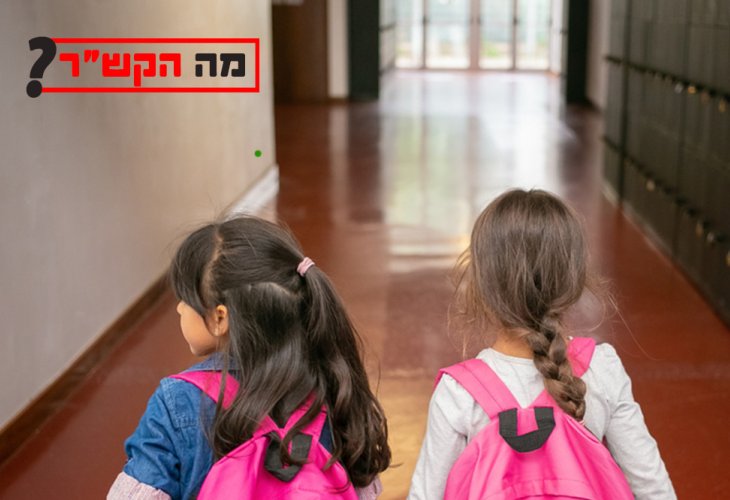Navigating the Unknown: Is It ADHD?
I couldn't pinpoint exactly what was bothering me, but one thing was clear: something just wasn't right.
 (Photo Illustration: Shutterstock)
(Photo Illustration: Shutterstock)In Case You Missed the Last Chapter: What’s the Connection?!
When my sweet Michali moved up to kindergarten, I was a bit concerned.
Over the last year, she had become friends with a girl we’ll call Hila. Hila was sweet and charming; I had nothing negative to say about her, Heaven forbid. Still, their relationship seemed odd to me.
Slowly, Michali transformed from a sociable and cheerful child, who led the whole class, to someone who relied heavily on a single friend. Her drawings were colored "just like Hila’s," her afternoon playdates happened "only at Hila’s," and her mood at the end of the kindergarten day depended on whether Hila played with her or not.
The teachers noticed too and tried to separate them, but that didn’t work.
To this day, I have no idea what exactly happened. I remember it just because it was the first time something didn’t go smoothly with Michali.
The summer break before kindergarten marked my first head-on collision with bureaucracy. I still hadn’t realized how much time forms, applications, emails, and phone calls would consume in my daily life. Back then, it was still simple: a request to the city council to place my daughter in a different kindergarten. The default placement put her back in the same class as Hila, but I wanted to prevent the encounter. There were other technical reasons to prefer a different kindergarten, so I submitted the request.
And it was denied. At the last minute, of course. So they ended up in the same class.
Regrettably, I asked the teacher to separate them as much as possible. This time it worked; they no longer clung to each other. But Michali changed.
Suddenly, she had no friends. Suddenly, she was sad because she was teased in class, or simply because no one wanted to play with her. Suddenly, she would connect with a child one day—and the next, they were no longer friends. Situations I wasn’t familiar with.
Meanwhile, other issues started arising.
Actually, "issues" is quite a big word. These weren’t problems—just small, everyday events that seemed odd or illogical or not age-appropriate. But I didn’t even know how to put my finger on what exactly was bothering me. The only thing I could see was that something wasn’t right.
The year was coming to a close. Michali was set to enter first grade, and there was no logical reason not to promote her: she was over six, she was smart and talented. There was no reason or chance to hold her back. But my heart wasn’t at ease. I remembered her older sister at this stage, saw the differences, but again couldn’t fully articulate them. The only thing clear to me was that my eldest, Racheli, was completely ready to start school. Michali—not so much.
"This Can’t Be"
The teachers noticed too. One mentioned the possibility of a focus assessment on child development. They all recommended a pre-first-grade preparation class for the summer.
These recommendations can sometimes scare parents. Why an assessment? Why help? The child is so lovely, smart, sensitive, and special! Maybe she’s a bit immature, but she has no issues!
But I wasn’t alarmed. On the contrary, I was glad that someone else saw what I saw. Not everyone saw it. My whole family absolutely adored that little one, enjoying her sweet intelligence, her surprising and funny comments. When I mentioned her struggles in kindergarten and my concerns about first grade, everyone responded the same way: "This can’t be."
But yes, it could be.
The pre-first-grade preparation class was beneficial for one reason: I could see up close that she was truly struggling. Something didn’t fit for her, and she couldn’t perform like everyone else. I prepared myself for a more complex first-grade experience than I had previously known.
Do you have experiences at home with similar challenges? Feel free to share your thoughts.

